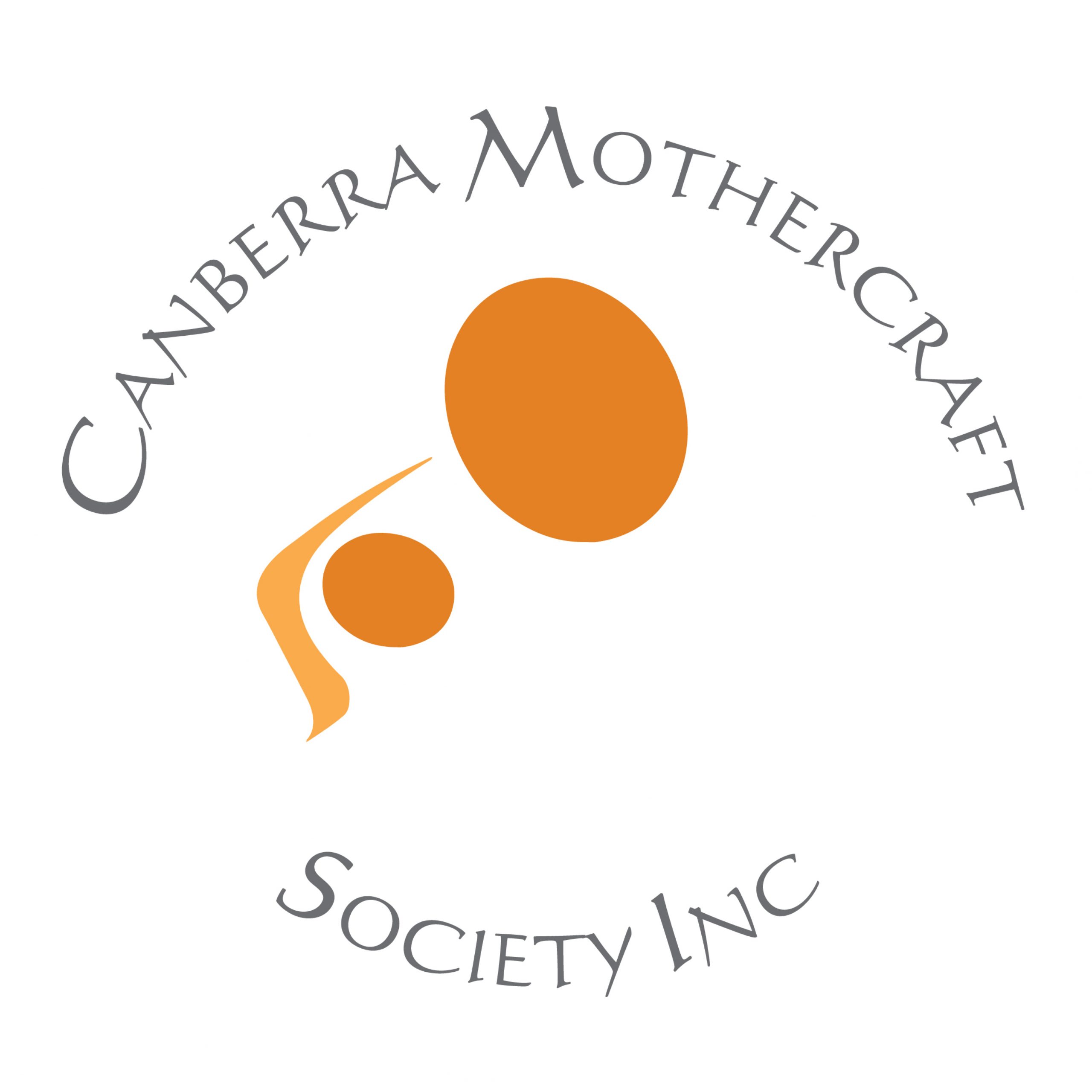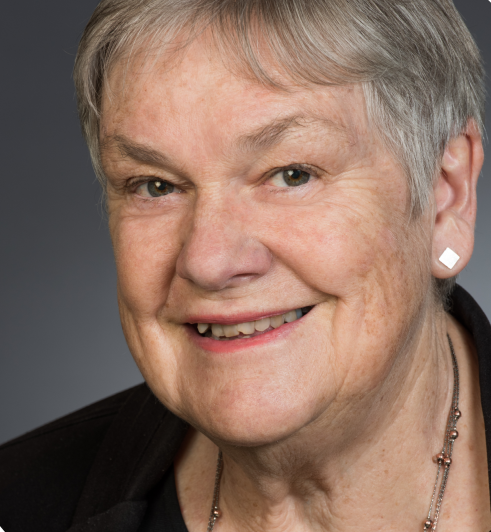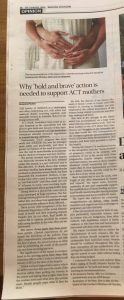By Suzanne Packer AM
The history of childbirth is a challenging and often confronting one, with infant and maternal deaths occurring regularly until mid-20th-century in Australia. This is in our living memory still.
As a result, Australians have come to accept hospitals as the appropriate and safe place to give birth and, because of this, families have been prepared to accept and endure sometimes stressful, traumatic experiences in hospital during childbirth.
Fortunately, much progress has been made and childbirth can now be managed more safely and predictably, and there is greater acceptance of the need for maternity care that can be more flexible in incorporating the choices of women and their families.
The keenly awaited report of the Inquiry into Maternity Services in the ACT, released earlier this month, is a very welcome step in this direction. It clearly shows that women and their families have always wished to be involved in decisions around birth, but have frequently felt overlooked. Mothers, in particular, have often coped in hospital by being in “survival mode” until they could “get over it” at home, in many cases receiving inadequate information about getting further help.
Giving birth is a pivotal life event and always enveloped in huge emotions. The harrowing histories given to this inquiry strongly reflect this, and show how unresolved issues can permanently influence the lives of those affected.
There is now wide acceptance of the fundamental importance of the social determinants of health and their enduring impacts. Despite this, far too often, final health decisions fail to address priorities for women with young families in the ways they are implemented.
This report shows again that these problems persist. Clinical experiences do not match the intentions of the policies. Even after comprehensive consultation, and with the best of plans, the actual services so often end up prioritising the needs of the providers, not those receiving services.
The significance of the report is encapsulated in its opening quote from Mary Kirk, executive officer of the Canberra Mothercraft Society (CMS) at the time of the inquiry:
“I think we have tripped into a space where we deliver services that meet the needs of the services rather than putting the woman in the centre and asking what is right, what does the woman need and what does the woman want. Mostly people want what is best for them.”
Ms Kirk, the director of the Queen Elizabeth II Family Centre in Curtin until CMS handed its running to Tresillian last year, emphasised the critical importance of the woman being central in protocols and decision-making at all times.
No matter the circumstances of each woman’s life, maternity services should recognise and accommodate their individual needs.
This view is the strength of the report, which has accomplished, on a large scale, what CMS has always striven to do – find out from mothers in the ACT about their experiences and thoughts on the maternity services they would like. The consequences of the changes in practice around childbirth in recent years have been documented in QEII statistics and these were provided to inform the inquiry.
Among the report’s 74 recommendations is the recognition that the “medicalisation” of pregnancy needs to be revisited, with continuity of care as the central need. Some pregnancies require complex monitoring and intervention, but even in these complex situations overall monitoring and support could often be most appropriately provided by a skilled midwife, and this could be the main focus of the whole service.
Short hospital stay is now the norm, with length of stay often determined by limited bed capacity. The report notes, however, continuity of care and community support for establishment of breast feeding and postnatal health monitoring after leaving hospital is inconsistent and not accessible for many. At the same time many women are keen to go home to escape the alien hospital environment. They are usually in good health, and accessible, reliable community support could be all that is needed.
The report also explored the continuing marginalisation of fathers, other family members and support persons at all stages of pregnancy and after the birth.
It also recommends more be done to support particularly vulnerable women, such as women who are Indigenous, from other cultures, with disabilities, subject to family violence, or who have loss and bereavement associated with their birth experience.
The report concludes that no matter the circumstances of each woman’s life, maternity services should recognise and accommodate their individual needs. Women should be confident throughout this time, from conception till late toddlerhood, of receiving the supports they need to best manage the arrival of each child without feeling they are being judged.
I commend the report and endorse Mary Kirk’s urging of Health Minister Rachel Stephen-Smith to “be bold and brave” in implementing its recommendations.
Dr Suzanne Packer, AM, is a Canberra paediatrician and the 2019 Senior Australian of the Year. She is also on the board of the Canberra Mothercraft Society.
Opinion piece published in The Canberra Times on June 24, 2020


